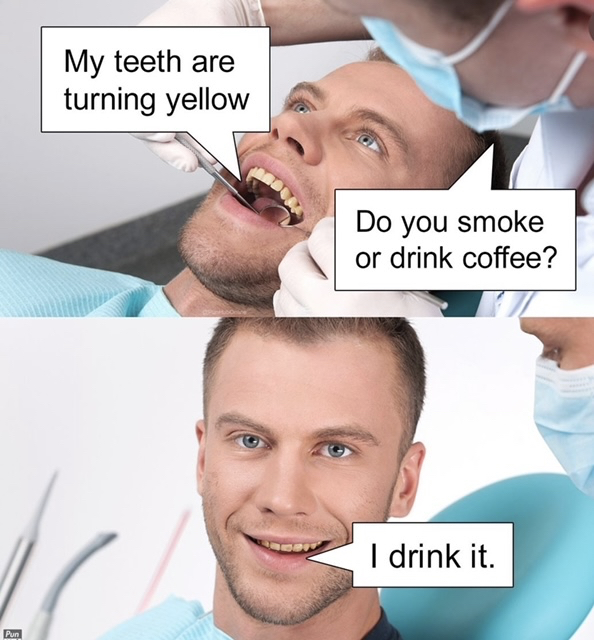-
Posts
1,886 -
Joined
-
Last visited
-
Days Won
5
Content Type
Profiles
Forums
Events
Everything posted by unicorn
-

If the election is about the economy, stupid, does Trump win?
unicorn replied to stevenkesslar's topic in Politics
Well, it does have jurisdiction, though obviously no enforcement powers of its own over a permanent member of the security council. -

If the election is about the economy, stupid, does Trump win?
unicorn replied to stevenkesslar's topic in Politics
The ICJ case is ongoing, however, "On 16 March 2022, the court ruled 13–2 that Russia must "immediately suspend the military operations" it commenced on 24 February 2022 in Ukraine, with Vice-President Kirill Gevorgian of Russia and Judge Xue Hanqin of China dissenting." -

If the election is about the economy, stupid, does Trump win?
unicorn replied to stevenkesslar's topic in Politics
The US has yet to celebrate its semiquincentennial (though it's coming soon). -

How have you dealt with religious/disapproving families?
unicorn replied to unicorn's topic in The Beer Bar
I feel a song coming on 😄 -

How have you dealt with religious/disapproving families?
unicorn replied to unicorn's topic in The Beer Bar
I'd send the book to his parents if I thought it'd help. I've noted this among some of my friends. Either the parents reject their children or their faith's teachings. Some faiths have some leeway, but others, such as Mormonism, are quite inflexible: either you shun your child or leave the church. I know one LDS couple, for example. One parent is supportive, and left the church, the other has no contact with her son. Churches which are maladaptive will lose membership. Since we came back from the Galápagos, I'm reminded of one of Darwin's truisms: The trend is especially evident in Western countries, such as France: Spain: Germany: -

How have you dealt with religious/disapproving families?
unicorn replied to unicorn's topic in The Beer Bar
I'm not sure how this relates to my hubbie. His family knew he's gay and "accepted" him only on the condition that he never spoke of it. That doesn't seem like real acceptance to me. One doesn't have to agree with the way a person is or what he believes to accept them. They literally believe Bible stories about the earth being created in 6 days, Noah's arc, and Jonah and the whale. I went to a couple of his cousins' weddings, and thought their talk of one spouse being "God's choice" for the other to be ridiculous. While I personally find their beliefs inane and preposterous, I can respect their differences in belief. I certainly have never challenged their beliefs, much less voiced an opinion that a marriage wasn't "God's plan," unlike members of his family. For what it's worth, my hubbie said he's never been happier, and it shows. -

How have you dealt with religious/disapproving families?
unicorn replied to unicorn's topic in The Beer Bar
Isn't faith wonderful? I feel a song coming on. -
I thank God 😉that I was brought up in an atheist family, but the opposite was true of my husband, who's also atheist but brought up in a highly religious family. They kicked him out when he was 18, and only one set of grandparents supported him (to an extent). Almost none of his family attended our wedding, other than some 2nd/3rd cousins and one first cousin. One added to the decline that marrying a man was not "God's will." Only the grandparents and one cousin had a legitimate excuse (the grandparents said they'd have come were it not for recent knee surgery, and one first cousin was undergoing chemotherapy). Well, one brother stated he had a midterm 2 days after our ceremony (veterinary school), though it was certainly very early in the semester to be having a midterm, and I personally don't believe it. For our honeymoon, we enjoyed a luxury cruise in the Galápagos. All of the guests in the dining room clapped and sang to us the Mexican song "Cielito Lindo" to celebrate our honeymoon, waving their napkins around their heads in the air. We've both enjoyed that campy movie Mommie Dearest, and after seeing the entire complement of guests and crew celebrate our wedding, I told him that the scene reminded me of when Joanne Crawford asked her daughter why her own daughter couldn't give her the same respect given to her by any random people on the street: Well, my husband was not about to strangle his mother, but he told me that she texted him (after the honeymoon) and wished to communicate with him again (he stopped all communication with those who refused to come to the wedding). He said he texted her back and said that she would remain incommunicado until she apologized on social media and sent him the same amount of $$ she spent on any of her other children's weddings. I advised him not to hold his breath. I doubt that day will ever come. It's difficult for me to put myself in his shoes, since my family background was polar opposite, with both parents having scientific doctoral degrees, and eminent scientific careers. I'm curious if any members here came from families with religious/disapproving backgrounds, and how you may have dealt with that.
-
I find it a bit silly to be "debating" this issue. Sadly, it looks as though Trump will probably win. Smooth talking by a lifelong con-man will probably win over facts. I'm moving some of my assets over from stocks to bonds, since Trump's tariff frenzy will probably cause a downturn in the great economy which Biden has left us with, despite what he inherited. But this is purely a matter of informed speculation, not of opinion, so there doesn't seem to be much sense in arguing. If one actually wants to be productive about it, one could help the campaign. Criticizing someone's predictions seems pointless.
-

Thai Airways in talks with foreign airlines to take a stake
unicorn replied to reader's topic in The Beer Bar
-
-
While the ethics of prostitution is debatable, prostitution is, de jure, illegal almost everywhere in the US.
-

Dame Maggie Smith dies aged 89
unicorn replied to reader's topic in Theater, Movies, Art and Literature
Here she is playing with an unrecognizable Sir Lawrence Olivier: She received an Oscar nomination for her role in this movie. -
https://www.newsweek.com/russian-pilot-found-dead-after-alleged-hammer-attack-1972098 "A senior Russian pilot complicit in a deadly attack on a Ukrainian mall has been found dead with hammer wounds to the head, according to the Ukrainian military intelligence (HUR). The pilot, named as Dmitry Golenkov, was said to be involved in the missile strike on civilians at Amstor mall in the Ukrainian city of Kremenchuk, on June 27, 2022. A total of 22 people died in the attack and at least 59 were injured. The body of Golenkov, who was chief of staff of the Russian 52nd heavy bomber aviation squadron, was found in an orchard on Sunday morning, in the Russian village of Suponevo, per a report released by HUR... At the time, President Zelensky called the attack, "one of the most brazen terrorist acts in European history," as at least 1000 people were inside the Amstor mall when it was hit... G7 leaders labeled the strike as "abominable," and listed aid for Ukraine as top of their agenda, according to Newsweek reporting at the time...". I feel a song coming on...
-
-
It's kind of difficult to miss one's own head when holding a gun to one's head. Murder makes more sense to me. 🤔
-
Maybe the simpler explanation is that one of those "names" forced him to write a "suicide note," and wanted to make sure he was dead. Then, of course, there are the Russian defenestrating "suicides," which rarely left behind notes.
-
-
-
I feel a song coming on...
-

Lufthansa denies boarding to Jews, fined $4 million
unicorn replied to unicorn's topic in The Beer Bar
And I don't think that calling attention to objectionable behavior of airline staff is in any way analogous to telling a neighbor's she's ugly (even if she is). Bad behavior, particularly in an organized setting, needs to be addressed so that corrective measures can be taken (so that, hopefully, this doesn't happen to others). Airline staff and police are given wide berths of authority, and this authority and trust can unfortunately be greatly abused. Biases and stereotypes are common, and keeping them in check requires active effort for those in authority. I may personally think Hassidic Jews' beliefs and behaviors are ridiculous, but I have to make the effort to recognize my biases and show them the respect we are all due as human beings. -

Lufthansa denies boarding to Jews, fined $4 million
unicorn replied to unicorn's topic in The Beer Bar
-

Lufthansa denies boarding to Jews, fined $4 million
unicorn replied to unicorn's topic in The Beer Bar
I must give you credit for being man enough to backtrack on your previous post, @vinapu. 👏 Some people will stick to their guns after having written some pretty ridiculous stuff, perhaps after a few drinks (?). Admitting an error is not a sign of weakness, but rather of wisdom and open-mindedness. Respect. My neighbors on both sides are beautiful, albeit a septuagenerian on one side and an octogenarian on the other. I suspect (but don't know) the reason the investigation took so long was that Lufthansa was stonewalling on providing the information, which was obviously shameful and showed the airline in a terrible light. I suspect the DOT needed to threaten further legal action. Hopefully some lessons were learned. For what it's worth, I also don't think my post was inflammatory either. Even if a problem does not necessarily represent a systematic bias in an entire airline or system, it needs to be addressed nonetheless. I marched for George Floyd even though I don't think that the actions of the few police officers who murdered him represent the entire police force. I don't think I was being inflammatory then, either. You're big enough to admit to your mistakes. Most corporations are not, and it took an external investigation to identify the problem at Lufthansa. (Had Lufthansa quickly admitted the problem, and immediately taken steps to rectify the situation, I suspected they wouldn't have faced such a hefty fine) -

Lufthansa denies boarding to Jews, fined $4 million
unicorn replied to unicorn's topic in The Beer Bar
Obviously, saying that anti-Jewish sentiment still has its place among SOME Germans at Lufthansa is neither "sweeping" nor "inflammatory," but simply factually correct. And yes, there are anti-black sentiments among SOME police and anti-Israeli sentiment among SOME students. Only an abject fool would deny that. Obviously, the US Department of Transportation, after investigating the matter for over 2 years, agrees with me (and not with you). One cannot address a problem without identifying it first. Sticking one's head in the sand would be a rather bird-brained reaction. Thankfully, Lufthansa has given its staff additional training in this matter.












